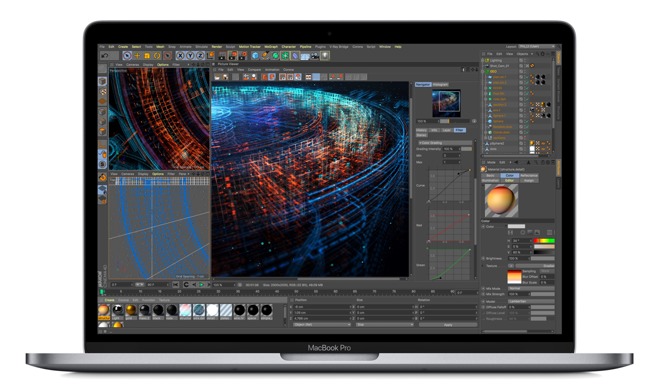Slow 2018 MacBook Pros? Oops, that was a bug. Update now for full speed.

Performance issues affecting Apple's latest 2018 MacBook Pros discovered over the past week have been identified as a software flaw in the system's thermal management software. The company has studied the issue and has released a free software update that tackles the issue—which affects all new 13 and 15 inch models, not just the top of the line MacBook Pro featuring an Intel Core i9 chip.
"Following extensive performance testing under numerous workloads, we've identified that there is a missing digital key in the firmware that impacts the thermal management system and could drive clock speeds down under heavy thermal loads on the new MacBook Pro," noted an Apple spokesperson.
"A bug fix is included in today's macOS High Sierra 10.13.6 Supplemental Update and is recommended. We apologize to any customer who has experienced less than optimal performance on their new systems. Customers can expect the new 15-inch MacBook Pro to be up to 70% faster, and the 13-inch MacBook Pro with Touch Bar to be up to 2X faster, as shown in the performance results on our website."
The macOS High Sierra 10.13.6 Supplemental Update is billed as a "stability and reliability" update, and is recommended for all users, including both 13 inch and 15 inch models with TouchBar, with Intel's 8th Generation "Coffee Lake" Core i5, i7 or i9 processors. However, new MacBook Pro users will need to manually select and install the update from the Mac App Store. Despite widespread assumptions that Apple had failed to design adequate cooling for the new generation of Intel processors, the real issue was simply a software error that only revealed itself in specific, heavy and sustained workloads.
Apple's initial performance claims for the new MacBook Pro models did not appear to reflect any impact from the bug. The problem was reported by YouTube videographer Dave Lee last Tuesday.
It was initially suspected to affect only (or primarily) new models with an i9 chip, likely because that model is clocked highest and can be driven to a higher temperature fastest.
For many users, the problem didn't show up at all. On Reddit, a reader commented, "all of the reviews I've read from actual pros (photographers, scientists etc) have been absolutely glowing about the performance of the new MacBook Pro."
Despite widespread assumptions that Apple had failed to design adequate cooling for the new generation of Intel processors (or was even intentionally throttling the performance of its new Pro gear to prevent overheating), the real issue was simply a software error that only revealed itself in specific, heavy and sustained workloads.
Without the fix, the new machines could turn in benchmark results that were worse than the previous models they replaced, unless the machines are externally cooled (preventing the thermal management system issue from kicking in).
After installing the fix, the new machines should consistently reflect Apple's originally published performance specifications, which presents the latest generation of Intel processors running significantly faster than the models they replaced.





